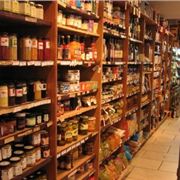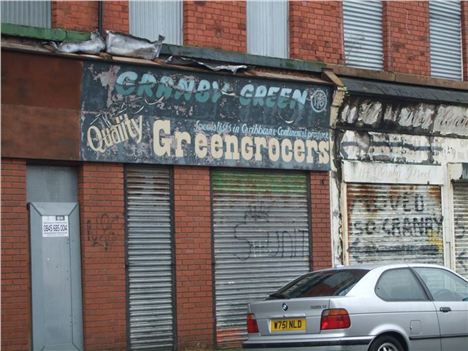TESCO, ASDA and other big supermarkets in Liverpool could be forced to pay a “community tax” to help struggling local retailers.
National statistics that show that in the last 50 years over 80 per cent of independent shops on high streets have closed, including local butchers, fishmongers, greengrocers and bakeries.
The idea, which will be thrashed out by Liverpool city councillors, is to impose a levy on the big supermarkets and use the proceeds to help sustain community shops and facilities.
It seems Bristol, another Mayor-run, city is already looking at such a scheme which would use current government legislation. In Liverpool it has been proposed by Green party councillor John Coyne.
 Where do you buy your jam? Despite the figures, he says: “We should not accept for a minute that the retreat of local shops in the face of supermarket competition is irreversible.
Where do you buy your jam? Despite the figures, he says: “We should not accept for a minute that the retreat of local shops in the face of supermarket competition is irreversible.
“If Tesco and its rivals face, say a five per cent levy on their rates in Liverpool, they won’t leave town, and if they do somebody else will take over.”
Gloomy predictions for the high street are being made nationally, with suggestions that a quarter of shops could disappear over the next few years, killed off by a multi-onslaught of competition from on-line shopping, increasing overheads and the recession, which has left many people counting their pennies.
Added Cllr Coyne: “This is about unlocking democracy and using current government sustainability legislation to help us redress the imbalances in our shopping centres.”
Cash raised could be used to animate shopping areas, provide tax breaks for a new generation of shopkeepers to give them a leg up the ladder.
“It is all about taking a long look at what our shopping centres are for and what their role is in society. Many of these centres have faced decades of competition from the big supermarkets who move in, saying they are creating hundreds of jobs. But at what social cost to the community?
 80 per cent of local shops have closed in the past 50 years
80 per cent of local shops have closed in the past 50 years
“It is now possible to go to a supermarket, use the self-service check outs and do your shopping without speaking to another human being. Local shops are often the glue essential in community cohesion.”
In its deal with Liverpool City Council three years ago, Tesco pledged £600,000 to the Dingle area to facilitate its opening in Park Road. But not everyone was convinced.
The proposal will be discussed at next Wednesday's meeting of Liverpool City Council.
Campaigning to halt the march of the superstores
One challenge to the overpowering high-street domination of the supermarkets is being led by national campaign organisation, localworks.org.

Localworks is campaigning to halt the decline of the high street and end the ripple effect it has through communities – and they say a major factor in this decline is the relentless rise of large supermarkets. They are calling on people to lobby their own councillors to implement the Sustainable Communities Act which would see such levies imposed on the giants.
These are the stark statistics from Localworks which they say are a result of the big supermarkets.
* Over 80 percent of independent shops on high streets have closed,including local butchers, fishmongers, greengrocers and bakeries.
* Meanwhile, hundreds of new supermarkets are opening and increasing the number of local convenience stores they own.
* The supermarkets control a whopping 97 percent of the grocery market, and they take money out of local communities.
* Half the turnover of an independent local retailer goes back into the local community, while just 5 per cent of the turnover of a supermarket does.
* Every time a new supermarket opens, 276 jobs are lost locally. Between 2008 and 2010, the big supermarkets Tesco, Asda and Sainsbury’s, pledged to create 67,000 new jobs. They fell far short of this target, creating just 28, 217 jobs.
* A staggering 17 billion portions of fruit and vegetables are left to rot by supermarkets, rejected because they are not considered “uniform”. To reach the standards supermarkets demand, intensive farming techniques are necessary, with a limited variety of food grown and use of chemicals to keep the fruit looking perfect.













